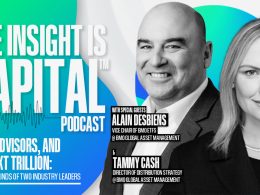Gold Market Diary (November 22, 2010)
For the week, spot gold closed at $1,353.47 per ounce, down $15.28, or 1.12 percent for the week. Gold equities, as measured by the Philadelphia Gold & Silver Index, fell 1.73 percent. The U.S. Trade-Weighted Dollar Index rose 0.43 percent for the week.
Strengths
- Marcus Grubb of the World Gold Council commented: “The rediscovery of gold’s properties as both a currency and a monetary asset have been brought into sharp focus. Quantitative easing has forced the adjustment of global imbalances into currency markets and the resulting currency conflict is positive for gold. In addition, we believe demand will be facilitated by the growing number of channels that serve to make gold more easily accessible to a greater number of investors.”
- Founder of CPM Group, Jeff Christian, recently noted that, “Right now you've got all of the stars aligning for favorable gold prices. You have a lot of investor concerns about economic conditions and stock market conditions, and very low interest rates you have a great deal of concern about financial market instability.”
- At the first annual Forbes & Manhattan Resource Summit, Dundee Wealth Inc. Chief Economist Martin Murenbeeld presented his "Nine Bullish Arguments for Gold," which clearly make a strong case for further commodity cycle momentum. “The shortest (gold) cycle, it turns out, is 10 years. We have just finished the ninth year," Murenbeeld explained. "With the kind of things that are happening in the global economy, could I stand up here and say to you this will be the shortest commodity cycle in the history of these data? In fact, I'm likely to say this will be one of the longest, if not the longest cycle, in the history of these data.”
Weaknesses
- The Chicago Mercantile Exchange raised margin requirements for gold by 5.9 percent and 11.5 percent for silver, among other precious metals, at the close of business on Tuesday.
- Vietnam is considering a new 20 percent export tax on gold. The Ministry of Finance said the tariff, which will also apply to semi-manufactured forms of gold and gold plated with platinum, is aimed at curbing exports of the metal.
- The Organization for Economic Cooperation and Development (OECD) has called on Australia to extend its controversial mining tax to all companies operating in the sector. The organization said the planned tax was "justified" and should also be extended to all commodities.
Opportunities
- According to the World Gold Council, demand for gold in the fourth quarter of 2010 will be driven by increased demand from the world’s two largest markets India and China, jewelry demand exceeding 2009 levels in India, and concern over fiscal imbalances and currency tensions.
- China's gold consumption is set to rise by about four percent from a year earlier to 430 tons this year, said a senior executive of China National Gold Corp., one of the country's largest gold producers.
- "The rapid growth in China's gold consumption will stay intact in the coming years, thanks to an expanding pool of gold products and growing investment demand on inflation fears," said an analyst at state-backed research firm Antaike.
Threats
- Despite China’s gold consumption of approximately 430 tons this year, the accelerating domestic output will reduce China’s need to import said Sun Zhaoxue, general manager of China Gold Corporation.
- Starting December 1 thru April 2011, approximately 4.6 million unemployed workers will begin rolling off of the Federal emergency unemployment compensation and extended benefits programs. If congress does not extend the program, instead of receiving up to 99 weeks of benefits, the unemployed will only be eligible for the standard 26 weeks of benefits. About 200,000 workers will fall out of the programs each week while new job growth will be lucky to exceed 100,000 per month. By the time all the Federal EUC/EB benefits expire, the total will amount to an annualized hit to personal income of $70 billion.
- Former Fed Chairman Alan Greenspan recently commented to Congress on the U.S. financial situation. Greenspan said, “The big, serious problem is whether or not the outlook for the longer-term deficit spooks the bond market to a point where the long-term interest and mortgage rates move up very sharply. If that happens, that will cause the double-dip. Greenspan also noted, “At the moment we are borrowing more than a third of what we spend, and this is causing a huge increase in the debt, and it’s not going to be easily reversed.”










